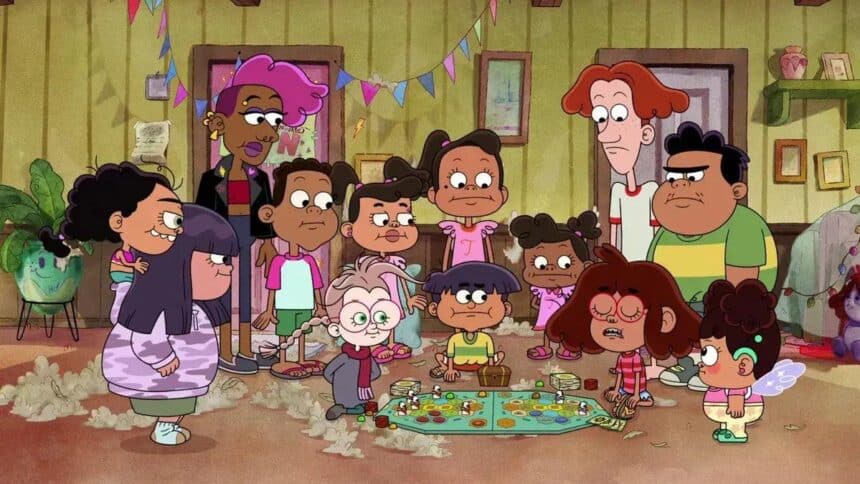The cultural impact of the animated series Primos has led to significant discussions about representation in media. While it aimed to showcase Latino culture, many viewers felt it relied on stereotypes. Critical reception was polarized, especially among Brazilian audiences who expressed disappointment over the authenticity of the language and humor used. As creators focus on diverse storytelling, feedback from viewers is essential for improving future content, highlighting the need for accurate portrayals that resonate with audiences. This controversy underscores the responsibility of media to reflect cultural nuances effectively.
Primos sparked significant debate over cultural representation in media. What went wrong, and how can such mistakes be avoided in the future? Let’s dive into this controversy.
The Cultural Impact of Primos
The cultural impact of Primos has sparked discussion among viewers. Many feel that media should accurately represent diverse cultures. When shows don’t do this, it can create misunderstandings and offense.
For example, Primos aimed to showcase Latino culture, yet some felt it missed the mark. Viewers wanted characters that felt real and relatable. Instead, they got stereotypes that didn’t reflect their true experiences.
Audience Reaction
The reaction from audiences was mixed. Some fans appreciated the effort to include Latino stories. Others found the humor and themes not representative of their lives. This difference in opinion highlights how vital it is to involve diverse voices in media creation.
Importance of Authenticity
Authenticity is key in storytelling. Viewers connect more with characters that share similar backgrounds. For many, seeing accurate portrayals of their culture is necessary for representation.
When shows like Primos fall short, they run the risk of alienating potential fans. Many people want to see their stories told with respect and accuracy.
Long-Term Effects on Industry
This controversy could affect future media projects. Studios might think twice about how they create content, aiming for genuine representations. If they listen to audience feedback, it could lead to better stories that resonate with more people.
In summary, the cultural impact of Primos shows the importance of authentic representation in media. As discussions continue, hopefully, future projects will learn from this experience to create more engaging and respectful content.
Critical Reception and Brazilian Audience Reaction
The critical reception of Primos has been a mixed bag. Many reviewers praised its intention but pointed out flaws. Critics say the show didn’t represent Latino culture well. This led to disappointment for some audiences.
Brazilian viewers had strong opinions. Some found the humor relatable while others felt it missed the mark. They expected characters that mirrored their own experiences. Instead, they saw stereotypes that felt out of place.
Response from Fans
Fans took to social media to share their thoughts. Many expressed pride in seeing Latino stories told. Others voiced concerns about how these stories were portrayed. This sparked discussions on what real representation means.
Impact on Latino Representation
This reaction highlights the importance of authentic voice in media. When shows like Primos get it wrong, it affects viewers deeply. They want to feel seen and understood.
Brazilian audiences seek content that reflects their identities. They desire shows that honor their culture and experiences. When this doesn’t happen, it creates a disconnect.
Future Implications for Creators
The response from viewers could influence future projects. Creators may need to listen more closely to feedback. Engaging with audiences can lead to better storytelling.
It’s clear that critical reception matters. Shows that aim to portray culture need to do so thoughtfully. This ensures they resonate with the audience.
Analysis of Language Use in Primos
The language used in Primos plays a crucial role in shaping its narrative. The show aims to reflect the experiences of Latino families, but its approach has raised eyebrows. Many critics felt that some jokes didn’t land well, and certain phrases felt out of touch.
Using slang and cultural references can enhance a show. However, Primos sometimes missed the mark. The dialogue should feel relatable and authentic to truly resonate with viewers.
Importance of Cultural Nuance
Cultural nuance in language is vital. It helps create characters that feel real and grounded. When shows fail to incorporate these subtleties, they often come off as shallow or gimmicky.
Viewer Perception
The way language was used influenced viewer perception significantly. Some found the dialogues fresh and fun, while others criticized it for being stereotypical. This divide highlights how important it is for writers to listen to feedback.
Impact on Representation
Language that accurately represents culture can empower audiences. If done well, it fosters a sense of belonging. Shows like Primos must strive to get this right to encourage diverse storytelling.
Ultimately, language shapes how audiences connect with stories. Missteps in dialogue can lead to misunderstandings about culture and identity. This is a crucial factor that creators must keep in mind moving forward.
Future Implications for Cultural Representation in Media
The future implications for cultural representation in media are significant. As audiences become more vocal, creators must listen closely. Primos showed us how important it is to authentically portray different cultures.
Audiences crave stories that reflect their experiences. They want to see characters that look and sound like them. Shows that do this tend to resonate more with viewers.
Changing Trends in Storytelling
More creators are realizing the power of diverse storytelling. The success of inclusive shows can lead to better representation overall. This encourages networks to invest in projects that highlight underrepresented voices.
The Role of Feedback
Viewer feedback is critical for shaping future content. When audiences share their thoughts, it helps writers improve. Shows need to adapt and evolve to meet audience expectations.
Impact on Industry Standards
As cultural representation improves, industry standards may shift. Creators will be held accountable for how they portray different cultures. This can lead to a more inclusive media landscape.
Overall, the push for better representation is essential. It encourages richer stories that benefit everyone. The media has a responsibility to reflect the diversity of our world.







